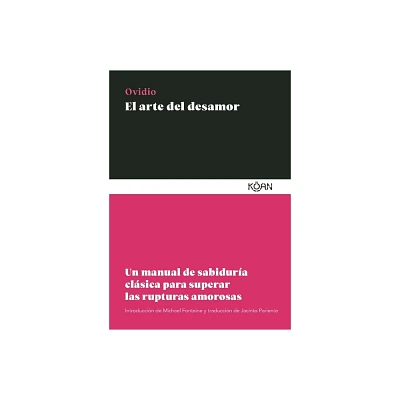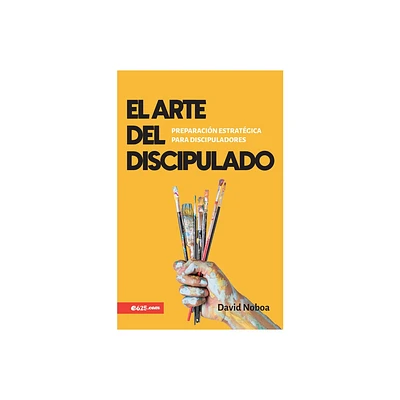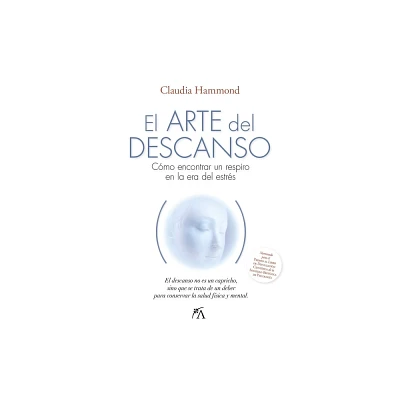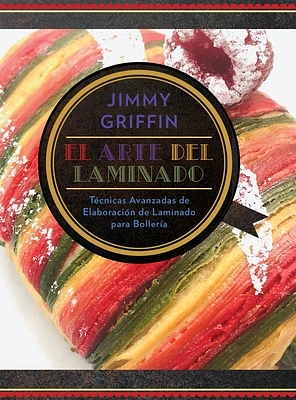Home
Arte del bien vivir, El
Loading Inventory...
Barnes and Noble
Arte del bien vivir, El
Current price: $29.95


Barnes and Noble
Arte del bien vivir, El
Current price: $29.95
Loading Inventory...
Size: OS
*Product Information may vary - to confirm product availability, pricing, and additional information please contact Barnes and Noble
Es innegable que el ser humano busca la felicidad y que tiene dificultades para hallarla. Se trata de un fenómeno que no es nuevo, pues desde la más remota Antigüedad el hombre se ha interrogado acerca de qué es la felicidad, dónde reside y cómo alcanzarla. Para los griegos, pueblo de profundo pesimismo, la búsqueda de la felicidad (eudaimonía) era un tema tradicional de la filosofía y fue precisamente en Grecia donde surgió la doctrina de la felicidad de Epicuro (341-270 a.C.), autor maldito y manipulado (como su admirador Nietzsche) y que tal vez ha sido el pensador que ha abordado con más lucidez la cuestión de la eudaimonía. Su doctrina, con afán evangélico, busca y promete a sus adeptos la felicidad a través del placer (hedoné), la autosuficiencia (autarquía), la amistad (philía) y la calma mental (ataraxia), ofreciéndose como medicina contra el dolor de la carne y los sufrimientos de la mente. Pero el hedonismo epicúreo, que por su limitación resulta casi un ascetismo y que armoniza bien con la antigua máxima apolínea de que la sabiduría consiste en la moderación y el conocimiento de los límites, está totalmente alejado tanto de la tiranía de la «happycracia» como de la nociva cultura del deseo desaforado y vacuo de la posmodernidad contemporánea y, por ello mismo, por constituir una terapia eficaz contra los males que aquejan al nihilista ser humano de la era neoliberal, la propuesta intemporal de Epicuro para una felicidad auténtica merece ser conocida por todos.
It is undeniable that human beings seek happiness and have difficulty finding it. This is not a new phenomenon: ever since ancient times man has wondered about what happiness is, where it lies and how to achieve it. For the Greeks, a people of deep pessimism, the search for happiness (eudaimonia) was a traditional theme of philosophy and it was precisely in Greece where Epicurus´ (341-270 BC) doctrine of happiness emerged. A cursed and manipulated author (just like his admirer Nietzsche), Epicurus has probably been the thinker who has most lucidly approached the question of eudaimonia. Its doctrine seeks and promises its followers happiness through pleasure (hedoné), self-sufficiency (autarky), friendship (philía) and mental calm (ataraxia), offering itself as medicine against the pain of flesh and the sufferings of the mind. But Epicurean hedonism, which harmonizes well with the ancient Apollonian maxim that wisdom consists of moderation and the knowledge of limits, is totally removed from both the tyranny of the "happycracy" and from the noxious culture of unrestrained and vacuous desire of contemporary postmodernity. This is precisely why Epicurus's timeless proposal for authentic happiness deserves to be known for everyone: for constituting an effective therapy against the ills that afflict the nihilistic human being of the neoliberal era.
It is undeniable that human beings seek happiness and have difficulty finding it. This is not a new phenomenon: ever since ancient times man has wondered about what happiness is, where it lies and how to achieve it. For the Greeks, a people of deep pessimism, the search for happiness (eudaimonia) was a traditional theme of philosophy and it was precisely in Greece where Epicurus´ (341-270 BC) doctrine of happiness emerged. A cursed and manipulated author (just like his admirer Nietzsche), Epicurus has probably been the thinker who has most lucidly approached the question of eudaimonia. Its doctrine seeks and promises its followers happiness through pleasure (hedoné), self-sufficiency (autarky), friendship (philía) and mental calm (ataraxia), offering itself as medicine against the pain of flesh and the sufferings of the mind. But Epicurean hedonism, which harmonizes well with the ancient Apollonian maxim that wisdom consists of moderation and the knowledge of limits, is totally removed from both the tyranny of the "happycracy" and from the noxious culture of unrestrained and vacuous desire of contemporary postmodernity. This is precisely why Epicurus's timeless proposal for authentic happiness deserves to be known for everyone: for constituting an effective therapy against the ills that afflict the nihilistic human being of the neoliberal era.

















